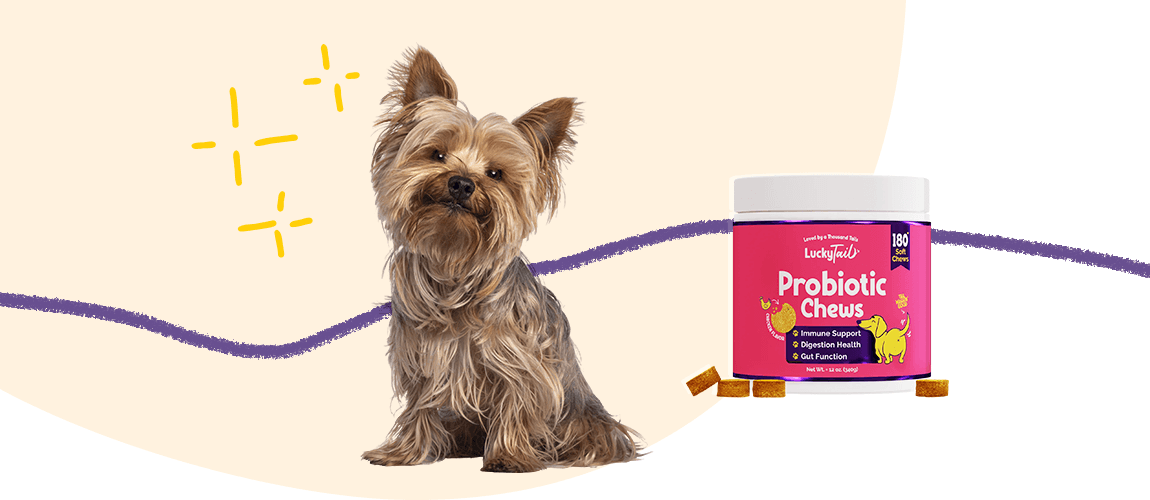
Inside your dog's gastrointestinal (GI) tract is a living community of bacteria that supports a healthy immune system and aids in digestion. This microbiome has a carefully crafted environment to help control “bad” bacteria. When an outside factor upsets this natural balance, it can negatively impact your furry friend's well-being. Explore common triggers, symptoms and what's good for your dog's gut health below.
Common Issues Affecting Pet Gut Health
Typical issues that can disrupt your dog's microbiome include:
- Common medications like antibiotics and antifungals.
- Immunosuppressants like steroids and glucocorticoids.
- An inappropriate or unhealthy diet.
- Stress and anxiety.
- Environmental toxins.
Any of these can upset the natural balance of bacteria in your dog's digestive system and cause the following conditions:
- Unhealthy weight
- Diarrhea
- Vomiting
- Diabetes
- Constipation
- Excessive gas
- Lethargy
- Poor coat appearance
- Behavioral issues
- Yeast infections
- Excessive licking or itching
- Joint inflammation and pain
How to Improve Dog Gut Health
You can take the following steps to help boost and maintain the health of your dog's gut microbiome.
Feed Them the Right Diet
Dogs should eat a healthy diet emphasizing whole foods and nutritional value. Choose high-quality foods with premium ingredients, and read the labels carefully. Your veterinarian can also recommend a trusted brand meeting your dog's dietary needs.
Additionally, check with your doggy doctor about introducing other whole foods into your furry friend's diet for healthy gut support. Options they approve may include:
- Sweet potatoes, pumpkin and squash.
- Lean proteins, such as eggs, fish and poultry.
- Some fiber-rich fruits and berries.
- Fermented foods.
Keep Them Well Hydrated
Water helps support a healthy GI system and your dog's overall well-being. It aids in food breakdown and nutrient absorption. It also keeps digestion moving and can prevent constipation by creating softer, easier-to-pass stools. Offer your dog safe, fluid-filled foods and ensure water is available to promote hydration.
Reduce Their Stress Level
If your dog is experiencing stress or anxiety, it can manifest as a gut issue. These emotions stimulate the body's production of the natural hormone cortisol. Too much cortisol can lead to constipation, bloating and diarrhea that further increase your dog's anxiety. Learning how to manage your dog's stress can help you keep this hormone in check to prevent those outcomes.
Consider Prebiotics and Probiotics
Prebiotics and probiotics are natural remedies for dog gut health, helping promote and maintain the delicate balance inside the GI tract.
Prebiotics are the foods “good” gut bacteria eat to fuel their growth. These are common in high-fiber foods like pumpkin, cabbage and sweet potato.
Probiotics share a cell structure similar to the gut's natural good microbes. You can add these to your dog's diet through safe foods and high-quality supplements. Among the many benefits of probiotics is their ability to restore bacterial balance following a course of antibiotics, which may kill off good organisms.
Try LuckyTail Probiotic Chews
Our probiotic supplement chews are ideal for supporting a healthy canine gut environment. They come in a tempting tail-waggin' chicken flavor featuring human-grade, all-natural ingredients. If you're not completely satisfied, return them within 30 days for a full refund.
Order online today with a one-time purchase, or subscribe for regular shipments and extra savings.

